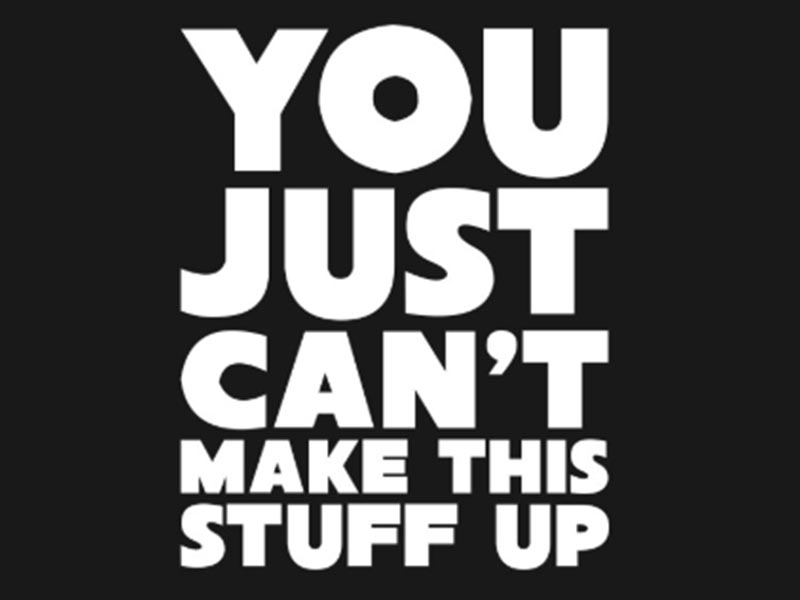Hat tip and applause to Laura Pressley and Larry Korkmas for putting a spotlight on this.
The Problem: A federal lawsuit filed in April 2024 by Dr. Laura Pressley, Robert Bagwell, Teresa Soll, Thomas Larry Korkmas, and Madelon Highsmith claims ballot secrecy was breached for over 60,000 Williamson County, Texas, voters in the November 2023 election.
According to court documents, the Plaintiffs obtained Williamson County election records through the Public Information Act. In those records, repetitive algorithmic patterns were discovered that map over 60,000 voter names to the exact ballot they cast in Williamson County in the November 2023 election.
Redacted federal court documents reveal that included in the 60,000 voters are the exact ballots cast by prominent elected officials including: Williamson County Sheriff, County Judge, County Attorney, District Attorney, County Commissioners, District Judges and more.
“Solutions” from the Texas Attorney General’s Office and the Texas Secretary of State Destroy the Ability to Audit Elections; Fail to Solve Problem
On June 6, 2024, Texas Attorney General Ken Paxton released a legal ruling in response to a request for records under the Public Information Act, reiterating that governmental entities have a legal duty to redact any personally identifying information on voters’ ballots when a Public Information Act request is made. Read 6.6.24 AG Opinion here.
Unfortunately, Paxton’s opinion on countywide polling gives a green light for counties to redact the polling location from election records and is open to interpretation to allow county redaction of precinct information from ballots. This quote is from the 6.6.24 OAG Opinion, page 2:
“…regarding the locations at which some of the voters cast their ballots constitutes personally identifiable information that could tie a voter’s identity to their specific voting selections. Accordingly, the personally identifiable information of voters contained in the requested information must be redacted.”
Redacting the polling location and/or precinct information from election records released to the public will 1) destroy the ability to complete an audit of election results, and 2) enable county employees and their agents to continue to breach ballot secrecy for some voters who cast ballots at countywide locations.
Later, on June 6, 2024, Texas Secretary of State Jane Nelson issued an “Emergency Guidance on Voter Privacy” Advisory through Christina Worrell Adkins, Director of Elections to Texas Counties. The SOS advisory demonstrates just how much this wrong-headed approach will convolute and slow down the entire public information process as well as destroy the ability to audit election results. See 6.6.24 SOS Advisory.
Summation of the Matter
Once again, this is the state government taking a bazooka approach to something that could be resolved with a pinpoint laser! All the State of Texas needs to do is remove the computerized ballot numbering system for in-person voters and get back to the ballot numbering specified in the law – in the Texas Election Code!
The consecutively numbered ballot laws in Texas – Tex. Elec. Code Sections 52.062, 51.006, 51.007, 51.009, 51.010, 62.007 and 62.009 – all work together to preserve ballot secrecy and enable the detection and prevention of ballot fraud.
Instead of adhering to those laws, counties are using illegal voting system software and hardware to assign, print, and store random unique identifiers/ballot trackers on in-person ballots cast at the polls. Why are counties doing this? Because the Texas Secretary of State unconstitutionally issued waivers of the law to allow it!
From the Williamson County federal lawsuit press release: “The Texas Secretary of State has waived many ballot numbering laws in the state since 2019 as seen in Election Advisory 2019-23 Section 13, and in lieu of those laws, created its own computerized ballot numbering system for in-person voters.
“Secretary of State Jane Nelson, through her Elections Division Director Christina Adkins, has authorized election administrators across the state to uniquely number each ballot with what they call “ballot tracking through the voting system software” with over 200 counties using some form of ballot numbering through the voting system software. Court documents claim such authorization by the Secretary of State violates both state and federal law, as described in detail in Plaintiffs’ Original Complaint and Motion for Preliminary Injunction.”
The unconstitutional waiving of law by the Texas Secretary of State is a prolonged, tiresome, and unnecessary problem. The Texas Constitution, Article 1 | Bill of Rights, Sec. 28., clearly states, “SUSPENSION OF LAWS. No power of suspending laws in this State shall be exercised except by the Legislature.”
As we see it, this week’s two proclamations from the AG and the SOS have actually made the case for the Pressley, Korkmas et al federal lawsuit. They’ve actually admitted what the Plaintiffs claim, but in no way do they remove the method by which ballot secrecy is destroyed via the SOS-sanctioned ballot numbering, ballot tracking method!
What is Grassroots America doing about it?
Today, we sent a written inquiry with our assessment to members of the Texas Senate State Affairs Committee (and Senator Bob Hall). At the time of this writing, Chairman Hughes and three other state senators had acknowledged receipt.
The Texas Senate State Affairs Committee is currently working on an “Interim Charge on Elections” from Lt. Gov. Dan Patrick. They have the ability to address ballot secrecy AND face down the usurpation of their legislative authority by the Secretary of State. This is a matter of urgency.
Bottom line Solution
Simply stop issuing waivers, Secretary of State, and follow the laws we already have on the books! We repeat – the consecutively numbered ballot laws in Texas – Tex. Elec. Code Sections 52.062, 51.006, 51.007, 51.009, 51.010, 62.007 and 62.009 – comply with the Texas Constitution, which requires consecutively numbered ballots. These parts of the Texas Election Code all work together to preserve ballot secrecy and enable the detection and prevention of ballot fraud.
Whether we title it “Bazooka vs. Laser” or “Just Stop Doing Unconstitutional Stuff,” this caused great angst, extra work, and a super-pressurized Friday for the already exhausted Texas conservative grassroots. Meanwhile, some elected officials just cannot understand why we’re so “out of sorts!”
You just can’t make this stuff up!
Be safe. Mind how you go. Hang in there with the Lord,







